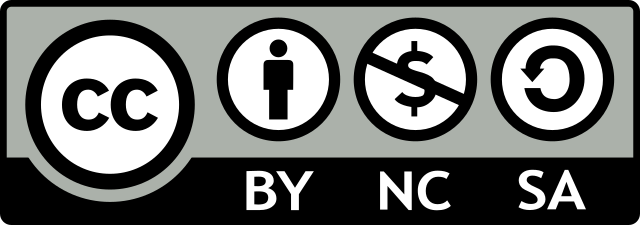Studi Komparatif Terhadap Problematika Pembelajaran Bahasa Arab di Pondok Pesantren Modern Rahmatul Asri Kab. Enrekang dan Pondok Pesantren DDI As-Salman Kab. Sidrap
Abstract
The objectives of this research were (1) to find out the problems of learning Arabic at the Modern Rahmatul Asri Islamic Boarding School, Kab. Enrekang. (2) To find out the problems of learning Arabic at the DDI As-Salman Islamic Boarding School, Kab. Sidrap. (3) To find out the comparison of the problems of learning Arabic that occur between Modern Rahmatul Asri Islamic Boarding Schools, Kab. Enrekang and DDI As-Salman Islamic Boarding School, Kab. Sidrap.
The type of research used in this research is qualitative research and the data collection techniques used are participant observation, in-depth interviews, and documentation. The data analysis techniques used involve processing, organizing, solving and synthesizing data as well as searching for patterns, disclosing important matters, and determining what is reported.
The results of this study indicate that: (1) The Problems of Learning Arabic in the Modern Rahmatul Asri Islamic Boarding School, Kab. Enrekang and DDI As-Salman Islamic Boarding School, Kab. Sidenreng Rappang are as follows: Linguistic problems, namely morphology and syntax-grammar. Non-Linguistic Problems, namely teaching staff, motivation and interest in learning, learning methods, learning tools, study time, and the environment. (2) In terms of linguistic problems, the two Islamic boarding schools have the same problems both in morphology and syntax-grammar, that is, there are still students who are not optimal in weighing words in Arabic according to the rules of sharaf science and are not optimal in forming sentence structures according to the rules of nahwu science, this is because because of his lack of fluency in reading the Qur'an. Whereas in non-linguistic problems there are the same problems in the two boarding school, namely in the Educators, some Arabic teachers have an educational background that is not linear with Arabic Language Education. Learning Methods, some teachers still use classical methods which are monotonous and study time is lacking. Meanwhile, the issues that differ between the two Islamic boarding schools are motivation and interest in learning, learning facilities, and the environment.
References
Abdussamad, Zuchri. Metode Penelitian Kualitatif. 1st ed. Makasssar: Syakir Media Press, 2021.
Ahmadi, and Aulia Mustika Ilmiani. Metodologi Pembelajaran Bahasa Arab Konvensional Hingga Era Digital. Yogyakarta: GENTA Grup, 2020.
Fakhrurrozi, Aziz. Pembelajaran Bahasa Arab. II. Jakarta: Direktorat Jenderal Pendidikan Islam Kementerian Agama RI, 2012.
Habibi, Burhan Yusuf. Integrasi Kurikulum Bahasa Arab Pesantren Tradisional Dan Modern Di Madrasah Aliyah Program Keagamaan. Journal of Arabic Studies. Vol. 4, 2019. https://doi.org/http://dx.doi.org/10.24865/ajas.v4i2.178.
Herdah. Kolaborasi Dan Elaborasi Dalam Pembelajaran Bahasa Arab. Parepare: IAIN Parepare Nusantara Press, 2020.
Krisdiyanto, Gatot, Muflikha Muflikha, Elly Elvina Sahara, and Choirul Mahfud. “Sistem Pendidikan Pesantren Dan Tantangan Modernitas.” Tarbawi : Jurnal Ilmu Pendidikan 15, no. 1 (2019): 11–21. https://doi.org/10.32939/tarbawi.v15i1.337.
Takdir. “Problematika Pembelajaran Bahasa Arab.” Jurnal Kajian Pendidikan Dan Bahasa Arab 2, no. 1 (2020): 40–58.
Zakiah, Nita. “Problematika Pembelajaran Bahasa Arab Siswa Madrasah Tsanawiyah Al Islamiyah Kotabumi Lampung Utara.” Indonesian Journal of Instructional Technology 2 (2021): 52–66.
Copyright (c) 2025 Siti Hafizhah Sumadji, Herdah, Darmawati, Abd. Halim K, Hamsa

This work is licensed under a Creative Commons Attribution-NonCommercial-ShareAlike 4.0 International License.

